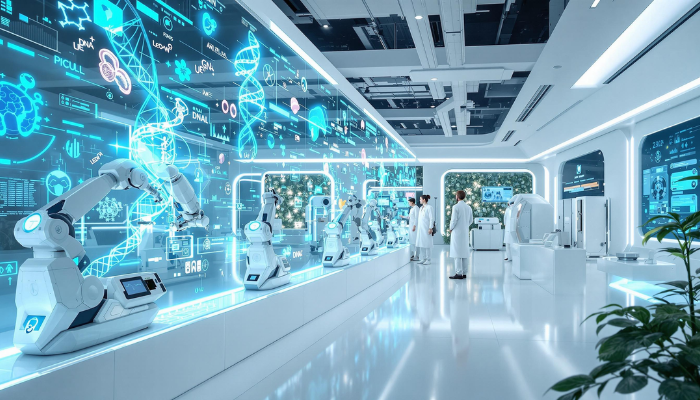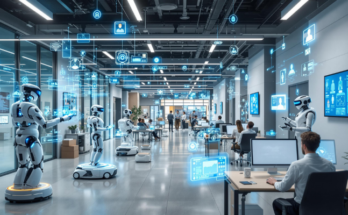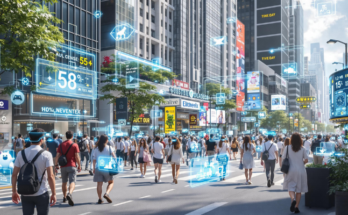Biotechnology occupies a unique position as the science fiction of today becomes reality within our generation today, and it is poised to revolutionalise health and medicine. This relatively young but growing field combines biology and engineering to create new interventions for some of the major health issues of the contemporary world. While moving further into the 21st century, biotechnological advancements do not only potentially extend knowledge of human physiology, but also recast healthcare. In this article, some of the most promising breakthroughs of biotechnology are defined, as well as their potential for future developments in the spheres of health and medicine.
The Rise of CRISPR: Gene Editing Revolution
The modern attempt of biotechnology is known as CRISPR-Cas9 technology. Built over the last ten years, this remarkable instrument allows researchers to alter DNA sequences with incredible accuracy. CRISPR, Clusters for Regularly Interspaced Short Palindromic Repeated sequences, was basically identified as a bacterial immunity against viruses. Researchers quickly agreed with its advances in gene editing for changing DNA sequence or to correct genetic abnormalities, fight the occurrence and spread of diseases, and increasing crop productivity among other uses.
Consequently and specifically, its relevance in medicine cannot be underestimated. For instance, they want to know whether it could cure hereditary diseases like sickle cell anemia and cystic fibrosis. Thus, if the researchers are able to correct the problematic genes causing these disorders, they will be able to eliminate the disorders at their root. Besides, the application of CRISPR can promote the advance of precision medicine, where medicines are made according specific genetic types to improve the therapeutic index.
owever, the ethical issues with regards to this technology cannot be looked past, and they are commonly known as CRISPR. Control over gene allows for such issues as ‘engineering’ human, consequences of intervention and the potential for malpractice in producing the so-called ‘tested tube specials.’ In addressing these moral questions, responsible body of biotechnology should aggressive measures on safety as well as fairness and voluntarism on the part of individuals.
Advances in Immunotherapy: A New Era of Cancer Treatment
Despite the scientific progress made during the last decades, cancer is still one of the biggest threats of the contemporary world, immunotherapy looks promising in this context. Immunotherapy is treatment, which uses the body’s immune system to remove the cancer; this is different from traditional techniques like the chemotherapy and radiation. Immunotherapy is a rapidly advancing filed within biotechnology, and new approaches include using monoclonal antibodies, checkpoint inhibitors, and CAR-T cell therapy.
Monoclonal antibodies can be designed to recognize certain molecules on cancer cells effectively painting on the target for complete wipe out by the immune system. On the other hand, checkpoint inhibitors operate in a manner to unbolt the immunity cells from the restrain and enable them to further aggressively attack the cancers. CAR-T cell therapy which is unique treatment at its core, means reprogramming of the patients’ T cells to better recognize and detect cancer cells. They have indicated outstanding results especially when dealing with hematological cancers like leukaemia and lymphoma.
More notably, the advent of what may be termed as personalized cancer vaccines has become a dream come through regarding the treatment of cancer. Through the analysis of genetic patterns found in tumors, scientists can develop vaccines that will induce the immune system to produce reactions unique to cancer cells in any given patient. As such, the present personalized strategy goes hand in hand with increasing outcomes, while reducing the probability of side effects, which are typical for traditional treatments.
A Look into the Future of Regenerative Medicine
Three innovative developments related to tissue engineering and regenerative medicine will play crucial roles in transforming the scope of injury and disease. This field consist of various numerous and diverse approaches such as; stem cell therapy, tissue engineering, and gene therapy. HSCs based on capacity to differentiate into more specialized cells offer a lot of potential for management of diverse ailments including spinal cord injuries and neurodegenerative disorders.
Recent years have seen main progress in stem cells and more clinical trials of their ability to replace degenerating tissues have been made. For example, there have been efforts to establish stem cell treatments for illnesses for example macular degeneration and heart disease that might fix damage and thus enhance the lives of those who undergo them. Moreover, 3D bio printing innovation makes it possible to build artificial tissues and organs with the intention of eradicating the problem of shortage of donors.
The second branch of regenerative medicine is gene therapy which makes use of genetic material to repair or replace an irreparably damaged part of the human body. through the process of adding, replacing or deleting specific genes in the body of the individual affected by a specific disorder to an alteration of body functioning that is targeted at hereditary diseases, which has been tried in the treatment of ailments such as; Hemophilia and Muscular dystrophy.
Smart Clothing for Healthcare Monitor and Telemedicine
There is therefore increased combination of biotechnology with digital health solutions to advance the patients’ monitoring and treatment plans. Smart gadgets such as smart bands to smart watches have enabled people to own their health by tracking different health parameters ranging from physical stats to health status. These devices capture real-time information, useful for changing a living pattern and for early diagnosis of a health complication.
Wearable technology is now being used also in clinical practice to help the healthcare professionals with regards to home monitoring. Such a development has been crucial during the COVID-19 outbreak, and telemedicine emerged as an essential solution to provide patients with care while keeping the infection risk at bay. Telemedicine, Telehealth, mHealth, Home Healthcare, and eHealth systems are now standard tools in healthcare practices because they are effective in reaching more clients and providing better and more efficient treatment.
The convergence of AI and biotechnology is the future of healthcare as we understand it. Through machine learning, artificial intelligence can mine large data sets we get from wearables to make predictions and recommendations on how people should improve their health. This integration of AI and Biotechnology has the potential to transform the healthcare model to the one where healthcare can deliver its services before diseases develop.
Amid the search for response to antimicrobial resistance.
Facing the threat of antimicrobial resistance (AMR) the world is in search of a solution and biotechnology companies are stepping up to fulfill the need. They define AMR as the situation where bacteria, viruses, fungi, and parasites develop an ability to withstand the impacts of medications making standard therapies irrelevant. According to WHO, AMR is stated as one of the biggest challenges to health worldwide calling for new solutions for controlling infections.
The current achievements in biotechnology help find new antibiotics and other forms of treatment. Scientists are using synthetic biology to develop new microorganisms’ tolerance and capability to create completely new kinds of antimicrobials. Further, the new approach phage therapy, in which bacteriophages (viruses that infect bacteria) are used to combat antibiotic-resistant infections is more slowly becoming accepted. It might help offer a local approach to fighting resistant bacterial strains without affecting naturally occurring health-promoting microbiota.
In addition, the biotechnology makes it possible to create fast diagnostic agent that quickly identifies pathogen, so that appropriate treatment can be prescribed immediately. Therefore, by utilizing technology to complement IDS of infectious diseases, we can level up our approaches against AMR and protect established antibiotics’ effectiveness.
Ethical Implication and Future Trend
In the current and future developments taking place we realize that these issues become even more intricate as biotechnology progresses. The fact that these technologies include gene modification and genetic engineering, ecosystem management, and synthetic biology serve as an important question about our ethical obligations to these technologies. To overcome these dilemmas and built strong regulatory frameworks, it is crucial to perform multidisciplinary debate involving scientists, ethicists, governmental officials and people.
Future of health and of medicine will not escape connections with biotechnological progress as its permanent attribute. The current possibilities of individualized approach to a patient, the chances for curing the damaged tissues, and the creation of a new approach in the area of diseases are expressed by the following ideas characteristic of the great changes in the healthcare system. Ironically, it has been proposed that the prerequisite for safe implementation of the pending revolution based on biotechnology is the public acceptance of related ideas and technologies.
In conclusion, advances in biotechnology are within a position to change the phenomenon of health and medicine qualitatively. From CRISPR gene editing up to immunotherapy and regenerative medicine these advancements would certainly alter ways we prevent or diagnose and cure diseases. But as we develop into the future, we have to take with us the owners of these emergent features responsibly so that they are for the benefit of all people and the preservation of our ethic fundamentals. Thus APEC members and other nations can develop and implement strategies that lead to forming a healthier, more sustainable future for all people, for the future generations.




